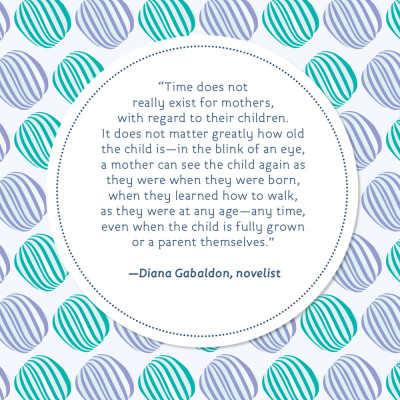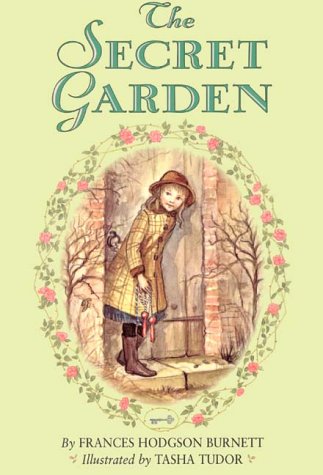Things That Scare Me
 Mamacita says: I’m really not afraid of very many things, but those few things I am afraid of, I’m terrified of. TERRIFIED. Here are a few.
Mamacita says: I’m really not afraid of very many things, but those few things I am afraid of, I’m terrified of. TERRIFIED. Here are a few.
1. Driving in the dark on snowy roads with faded center and side lines. And ice. And lots of oncoming traffic.
2. People who don’t read. People who don’t even want to read. People who hate reading. Incomprehensible. And horrifying.
3. Clowns. And the circus in general.
4. Horror movies. I can’t watch them. Also violent, bloody movies. Nope. Add to this mix most of television. Nope, can’t deal.
5. Stupidness. And there are those for whom that word fits perfectly. They are scary. 
6. Old white politicians who are set in their ways & determined to stay in office.
7. People who are obsessed with sports to the exclusion of pretty much anything cultural. Given their own way, they will doom us all.

Not cool, parents.
8. Finicky, overly-cautious people who bring down/control the group because they have to have their own way regarding location, menu, time, date, and circumstance. They are capable of anything. Anything. Proceed with caution. Give them their own way and half the time they end up cancelling anyway. Fear them.
9. People who have anger management problems. I’m terrified of them, and also scornful. Very scornful. Disgusted, even. Very disgusted. People who lay a violent hand on other people should be dealt with accordingly. And by “accordingly” I really mean “locked away so they can’t hurt anybody any more. I can’t think of a single excuse for them.

Don’t get it for him.
10. Undisciplined children who are allowed to run wild, touch others, grab things that aren’t theirs, hit, lie down in public places, and bother people completely out of the ordinary loop of children bothering people because they’re children. Too many of those, and the world is doomed. I’m also scared of their parents.
11. Drunks, druggies, addicts, and anyone who “needs” a non-prescription substance; do they really think they’re behaving normally? Because no. They’re terrifying and dangerous and. . . . see #5 above.
12. The entitled. Again, see #5. I include lazy, deliberately clueless, and happily ignorant in this category because NO, nobody has a right to be any of those.
 13. Reality shows. They highlight idiots people who are scary to the point of being dangerous, because (see #5) people watch and imitate them. Honey Boo Boo, hoarders, Bigfoot seekers, Duck Dynasty. . . . these are not role models. They horrify me. I am also scared of people who watch regularly and adore these kinds of people.
13. Reality shows. They highlight idiots people who are scary to the point of being dangerous, because (see #5) people watch and imitate them. Honey Boo Boo, hoarders, Bigfoot seekers, Duck Dynasty. . . . these are not role models. They horrify me. I am also scared of people who watch regularly and adore these kinds of people.
14. House fire. I am not afraid of fire – I tend to have pyromaniacal tendencies – but a fire in the house? I have nightmares about that.
15. Country music. It’s an oxymoron. I have the occasional daydream about people with that kind of grammar, and it’s never positive.
16. Bigots. Racists. Sexists. Homophobes. People who fear and resent differences.
17. Yelling. Raise your voice to me and I’m out of there, mentally if not physically. Physically if it’s possible. No yelling. The loudness scares me. The suddenness of it scares me. And the fact that you feel you have to yell to get your point across scares me most of all. This applies to people who yell across the whole house instead of getting up and going nearer to someone, too. Maybe especially. Don’t raise your voice to me. I won’t listen.
I am also afraid of the word “doomed;” that’s why I tend to overuse it. These things are dooming us all, and I am scared of them.
And big dogs running free. And wasps.
The surprising thing is, I love most people. I just can’t deal with people who don’t behave themselves in circumstances that require good behavior, or who don’t care about learning, literacy, and education.
“Cards Against Humanity” night is, of course, an exception.
The Timeline in my Head: Where, you tend a rose, my lad, a thistle cannot grow.
 Mamacita says: My children, of whom I often speak on this blog, aren’t really children any more. I know this perfectly well, but sometimes when I write of them – the cute things they’ve done, etc. – I tend to step into a time machine and go back and forth at nobody’s discretion, not even mine. The timeline in my head goes back and forth, without warning and often with interesting consequences. The explanation for this is simple, two-part though it is: Firstly, I am a mom. Secondly: I probably ain’t right in the head.
Mamacita says: My children, of whom I often speak on this blog, aren’t really children any more. I know this perfectly well, but sometimes when I write of them – the cute things they’ve done, etc. – I tend to step into a time machine and go back and forth at nobody’s discretion, not even mine. The timeline in my head goes back and forth, without warning and often with interesting consequences. The explanation for this is simple, two-part though it is: Firstly, I am a mom. Secondly: I probably ain’t right in the head.
My children are adults. They don’t live here any more. I don’t support them. I don’t feed them (on a regular basis) or clothe them (Santa Claus still does) pay their bills, clean their homes, supervise their social lives, or demand to meet the parents of their friends.
My children have friends I have never met. Imagine. This still blows me away. I suspect at times that my children have. . . sob. . . DATED. . . . people whose families I know nothing about. It’s impossible but true.
My children have been known to be photographed in bars pubs, with alcoholic beverages Cokes held high in the air as in some kind of toast or declaration of good times.
This is ridiculous, as I know for a fact that my children are just down the hall, putting on footie jams with Transformers and Strawberry Shortcake on them, in preparation for our nightly reading of  another chapter of The Secret Garden, complete with dialect.
another chapter of The Secret Garden, complete with dialect.
There’s naught as nice as th’ smell o’ good clean earth, except th’ smell o’ fresh growin’ things when th’ rain falls on ’em.
Remove the dialect and the cool fancy words, and all you’ve got is a Little Golden Book. Also? Mommy’s dialect makes small children giggle. There’s no amount of money in the world that could pay for that.
You’re not reading Frances Hodgson Burnett to your children, a chapter at a time, every night? What’s wrong with you? Kids grow up wrong when they’re not read to every night!
Not backing down.
So when I tell you here that my children still hang stockings at Christmas, and get a filled basket at Easter, and love to wear tiny little OshKosh overalls, and have an entire solar system of fairies under the desk in the living room, and make signs informing birds that we have lots of worms in our yard and they should all land here, and are so happy because they’re having blueberry muffins and boiled eggs for breakfast that they can barely eat for the rejoicing, all those things were true.
The Easter baskets and Christmas stockings are still true. Only bad mommies stop filling Easter  Baskets and Christmas stockings. Good mommies never stop. And that’s the truth.
Baskets and Christmas stockings. Good mommies never stop. And that’s the truth.
It’s all still true. It was true once and will always be true.
You just have to figure out where I’m standing on that timeline in my head. Good luck with that. I get confused, myself.
You’re Never Too Old to Love A Snow Day
 Mamacita says: After a full day of dire blizzard predictions, friends all over Facebook have been posting pictures of cars and doghouses and shrubberies buried in snow. What have I been doing? Looking out of my kitchen window and seeing nothing but consistent, pouring rain, grey skies, and a big. thermometer stuck at 41 degrees. Where was this predicted blizzard? It was like living in a doughnut hole. Dangerous levels of snowstorm all around us and weather that would support an ark in the middle.
Mamacita says: After a full day of dire blizzard predictions, friends all over Facebook have been posting pictures of cars and doghouses and shrubberies buried in snow. What have I been doing? Looking out of my kitchen window and seeing nothing but consistent, pouring rain, grey skies, and a big. thermometer stuck at 41 degrees. Where was this predicted blizzard? It was like living in a doughnut hole. Dangerous levels of snowstorm all around us and weather that would support an ark in the middle.
I’ve been jealous all day.
Then about a half hour ago, I opened the front door and saw it: our cars covered with  snow and the snowflakes so thick I could barely see the glow of the porch light across the street.
snow and the snowflakes so thick I could barely see the glow of the porch light across the street.
It was breathtaking.
Adding to the beauty of the storm were the two phone calls cancelling our respective  schools for tomorrow.
schools for tomorrow.
If you’re too old to appreciate a snow day, you’re truly old and there’s no hope for you.
If you have school-age kids, please let them sleep in and then play. Snow days are best experienced while smiling.






